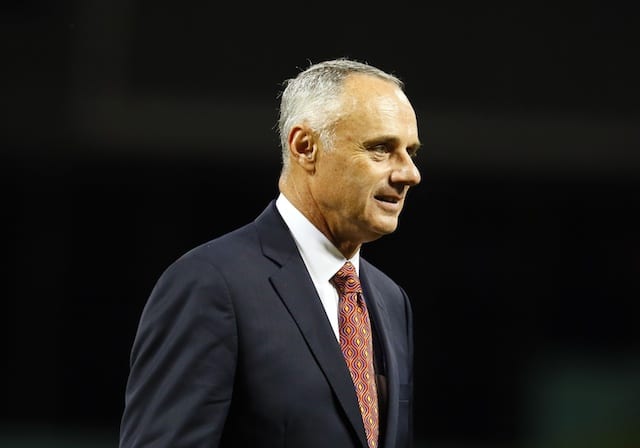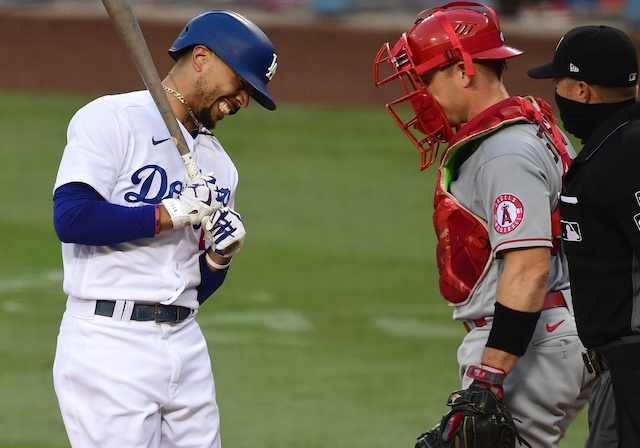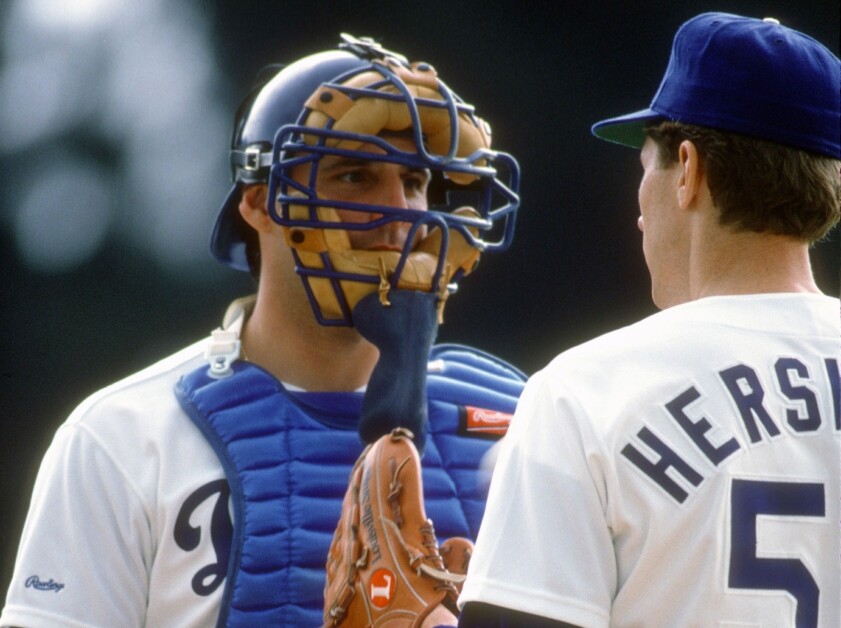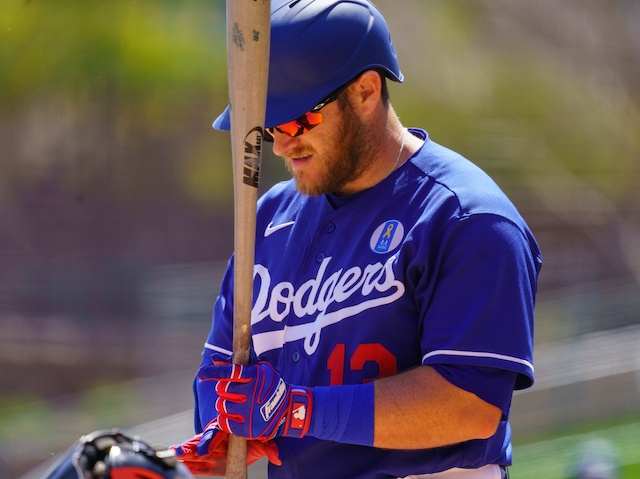With MLB’s collective bargaining agreement set to expire on Thursday, Dec. 1, commissioner Rob Manfred and Tony Clark, executive director of the Player’s Association, remain at work on negotiating a new deal to avoid any sort of stoppage.
There’s been widespread speculation the expiring CBA has played a role in free agency and trades not gaining much traction. Though, the foundation is typically set at the General Manager meetings, which were held earlier this month, with the Hot Stove truly heating up at the Winter Meetings.
The last time a new CBA was agreed upon there were significant changes made, including adjustments to free agency, the draft, international amateur free agent market, as well as the addition of a second Wild Card team to each league.
Additional changes are expected for a new CBA, as Manfred remains cognizant of means to improve the on-field product in effort to boost the popularity of the sport.
Per Tyler Kepner of the New York Times, a few potential changes have to do with active and expanded rosters, and days in a regular season:
The 162-game schedule will not change, although instead of taking 183 days to finish, the season may now fit it into a 187-day window. Active rosters are likely to increase to 26 players, from 25, as first reported by Fox’s Ken Rosenthal, and September rosters will most likely be capped at 28 or 29.
Under the current CBA, teams are only permitted to carry a 26th man for doubleheaders, and beginning Sept. 1, rosters expand to 40 players.
While the expanded rosters provide clubs with an opportunity to get a first-hand look at a bevy of Minor League players while giving their regulars time to rest, it typically correlates to longer games with an abundance of pitching changes.
Since taking the helm as commissioner, Manfred has stressed the importance of pace of play. Any changes implemented into a new CBA must be agreed upon by the league and Players Association. The qualifying offer process and luxury tax threshold may also be ratified.
Should the two sides not reach a deal by Dec. 1 it could lead to a lockout, something that MLB last endured in 1994.








